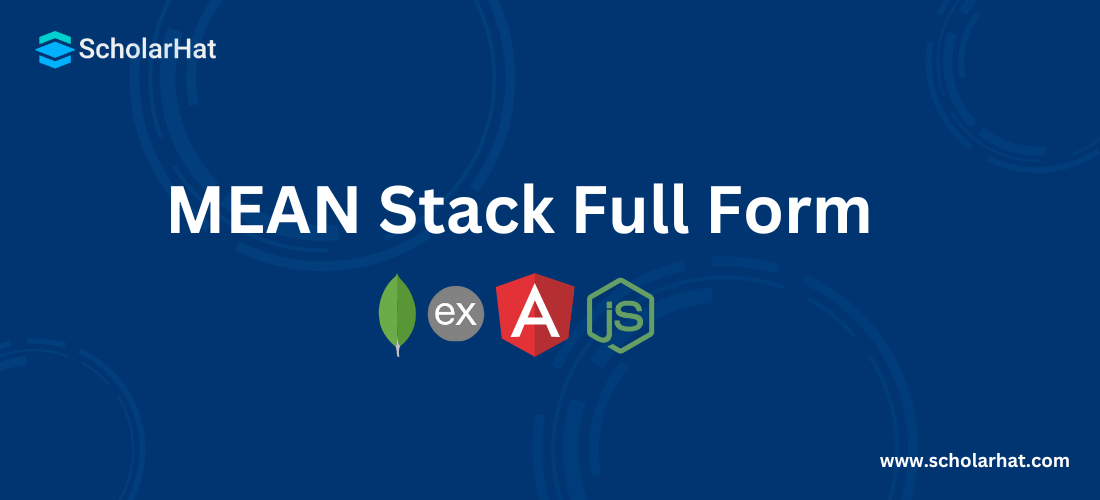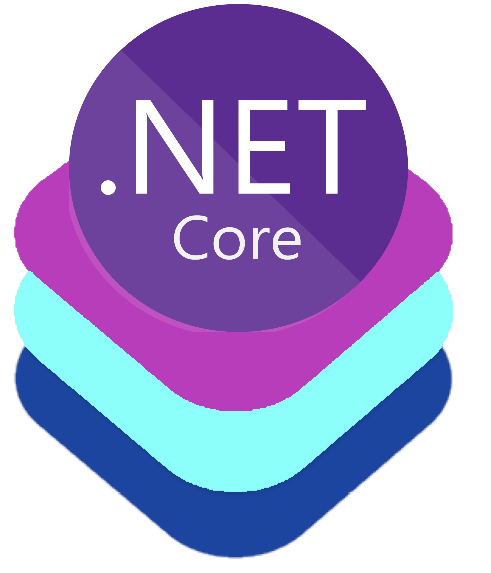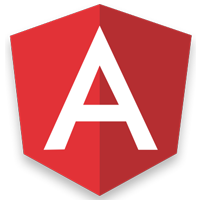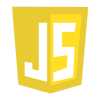09
MayMean Stack Full Form
MEAN Stack
MEAN stack is a technology stack for full-stack web development. Here, all the technologies are based on JavaScript. Hence, a good command of JavaScript becomes a compulsion. You can use a single pool of JavaScript developers to work adaptively, where and when needed.
In this Full stack Tutorial, we will delve deeper into MEAN stack, its benefits, use cases, and much more. To explore about more such topics, enroll in our Full stack Developer Certification Training right now!
Read More: Top 50 Full Stack Developer Interview Questions and Answers
What is MEAN Stack?
MEAN stack is a term that represents many technologies used for creating modern web applications. The full form of MEAN is MongoDB, Express.js, AngularJS (or Angular) and Node.js. It is a full-stack JavaScript framework that combines all these technologies to let the developers create dynamic web applications. Each component of the MEAN stack plays an important role in the development process, let's try to grasp each of these technologies one by one.
MEAN Stack Components
1. MongoDB
MongoDB stands for 'Mongo Database'.It is a NoSQL database that uses a document-oriented data model. Instead of storing data in tables and rows like traditional relational databases, MongoDB stores data in JSON-like documents with dynamic schemas. This flexibility makes it easier to handle unstructured or semi-structured data, which is common in web applications.
Read More:
2. Express.js
Express.js is a web application framework for Node.js. It works as the backend of the MEAN stack and provides a set of features to build web applications and APIs quickly and efficiently. Express simplifies the process of handling HTTP requests and responses, routing, middleware integration, and more.
Read More: Getting Started with ExpressJS
3. AngularJS/Angular
AngularJS is a front-end framework developed by Google. It is used for building dynamic and interactive single-page web applications (SPAs). Angular provides a comprehensive set of tools and features for data binding, dependency injection, routing, and more.
Read More:
4. Node.js
Node.js is a runtime environment that allows you to run JavaScript code on the server side. It uses an event-driven, non-blocking I/O model, making it lightweight and efficient for building scalable network applications. Node.js has a vast ecosystem of modules and packages available through npm (Node Package Manager), which greatly accelerates the development process.
Read More: Top 50 Node.js Interview Questions and Answers
MEAN Stack Use Cases
- MEAN stack is particularly well suited for developing cloud-native applications. It is highly scalable and can manage users side by side.
- It is highly recommended for building Single Page Applications (SPAs) where the entire application runs on a single web page.
- The MEAN stack is excellent for building real-time applications that require instant data updates without page reloads.
- Express.js and Node.js are widely used for building robust and scalable APIs and backend services. MongoDB's flexible schema design also makes it easy to store and retrieve data for these services.
- The MEAN stack can be used to build custom Content Management Systems where users can create, edit, and manage digital content easily.
Benefits of Learning MEAN Stack
- All components of the MEAN stack use JavaScript, allowing developers to use the same language for both client-side and server-side development.
- With MongoDB's flexible schema design and Node.js's non-blocking I/O model, the MEAN stack is well-suited for building scalable and high-performance applications.
- The MEAN stack has a vibrant community and a vast ecosystem of libraries, frameworks, and tools, which makes it easier to find resources and solutions for development challenges.
- All components of the MEAN stack are open source, meaning they are free to use and can be customized to suit specific project requirements.
MEAN Stack Disadvantages
There are many advantages of using MEAN stack, but like any other technology stack, it has some drawbacks too.
- Learning MEAN stack can be complex at first, as many technologies are connected to it.
- It is not a preferable choice for applications that require complex transactions due to the lack of full ACID transactions across multiple documents.
- The query language of MongoDB is much more complex than SQL.
- There could be large memory consumption while working with MongoDB.
- MEAN stack has a diverse set of documentation which can be difficult for developers to read and understand.
Summary
The MEAN stack is popular among developers as it is simple, flexible, and efficient. Through the above article, we learned about MEAN stack full form and its components. If you want to explore more into the world of Full Stack Developement, we recommend you to get enrolled in Full stack Developer Course.








